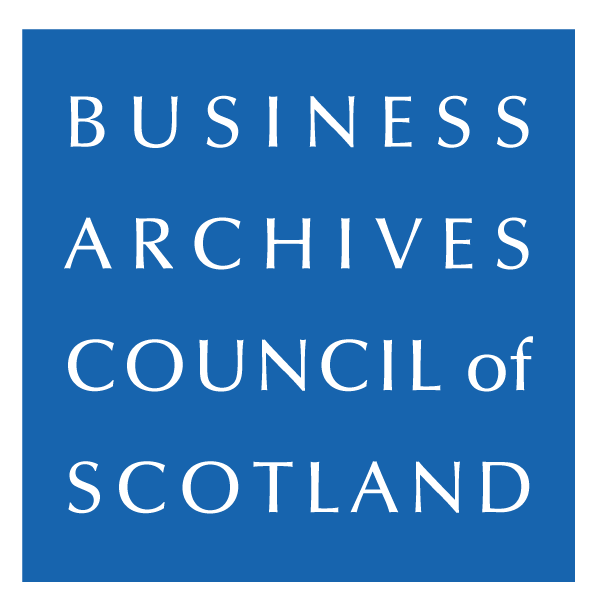A Brief History Of BACS
In 1959, Sydney Checkland was appointed to the Colquhoun Lectureship in Business History at the University of Glasgow. He was deeply conscious that the Lectureship could only attain its objectives by maintaining the support and interest of the business community. To this end the Business Archives Council of Scotland was established as an independent body in 1960, consisting of archivists, lawyers, bankers, accountants and businessmen as well as established archives bodies such as the National Records of Scotland.
Although the Business Archives Council (BAC) had been established in London in 1934, its human and financial resources were too stretched to mount any Scottish campaign. The BAC therefore offered their support to the BACS and this continues to be wholehearted with both organisations working on related National Strategies for Business Archives in recent years.
The aims and objectives of the BACS were “the preservation of study of archives which bear on the history of commercial and industrial enterprise”. A major exhibition of business records was held at the Mitchell Library in Glasgow and publicity generated in the press. From its early days, the BACS was undertaking surveys of business records held in private hands. Surveys are a valuable tool in identifying records of potential historical interest and in opening up collections to researchers. From the early days, as now, gaining permission to undertake surveys required much patient diplomacy. In tandem with this came rescue work, where BACS members would be involved in rescuing records that would otherwise be destroyed, occasionally with only hours to spare before they were due to be destroyed. These rescued records made their way to various basement stores at the University of Glasgow becoming the nucleus of the University’s unique collection of business records that became the Scottish Business Archive held today by the University of Glasgow’s Archives & Special Collections.
In 1973, after prolonged efforts, the Council was able to announce the preservation of the records of the constituent companies of the Upper Clyde Shipbuilders. This was aided by the liquidator of the companies Robert C Smith also being chair of the BACS. It marked a major achievement for the Council.
In 1976, the Council’s newsletter was incorporated with that of the Scottish Society for Industrial Archaeology to create a new journal, Scottish Industrial History.
In 1977, the work of the Council was such that it was necessary to appoint a full-time member of staff. The post of Surveying Officer was born, responsible for undertaking surveys of business records and co-ordinating rescue work as required. The 30th and 40th anniversaries of the post were celebrated in 2007 and 2017, with many former Surveying Officer’s coming together on both occasions.
The Council remains active. Scottish Industrial History continues to be published as Scottish Business and Industrial History and an active programme of surveying across the whole of Scotland continues although now funded exclusively by the Ballast Trust since 2015. Rescue work is undertaken as required, but somewhat thankfully on a less frequent basis than in past years.
BACS has been involved in several major projects such as the Capturing the Energy initiative in the north east of Scotland to record the heritage of the oil and gas industry and the National Strategy for Business Archives in Scotland. The Council through its executive committee members is represented on several archive and heritage bodies such as the Archives and Records Association, the Scottish Council on Archives, the Scottish Industrial and Transport Collections Knowledge network (STICK), the International Council of Archives: Section on Business Archives and the UK Crisis Management Team.
For a fuller history of the BACS, see Peter Payne’s article The Genesis and Infancy of the Business Archives Council of Scotland in Scottish Industrial History Volume 21 (2000).
